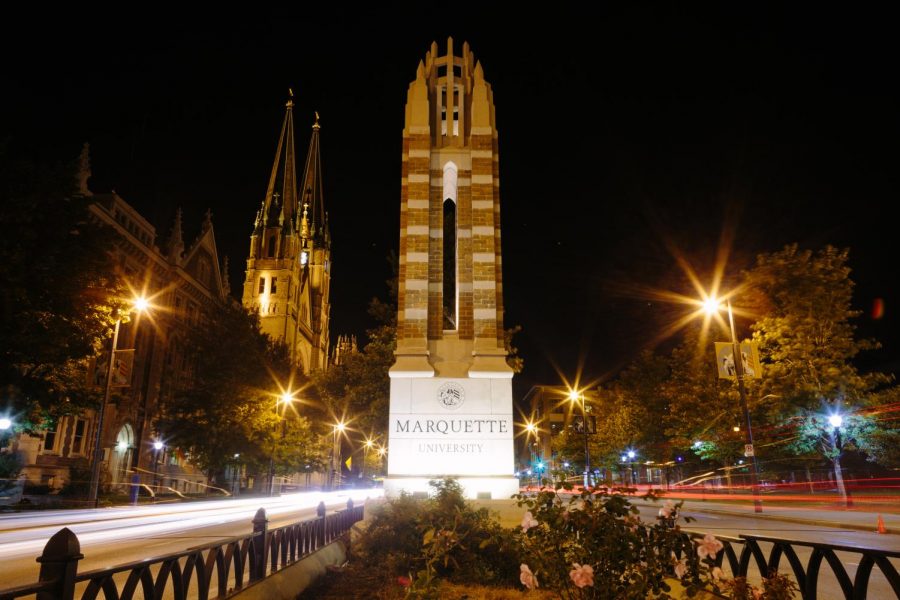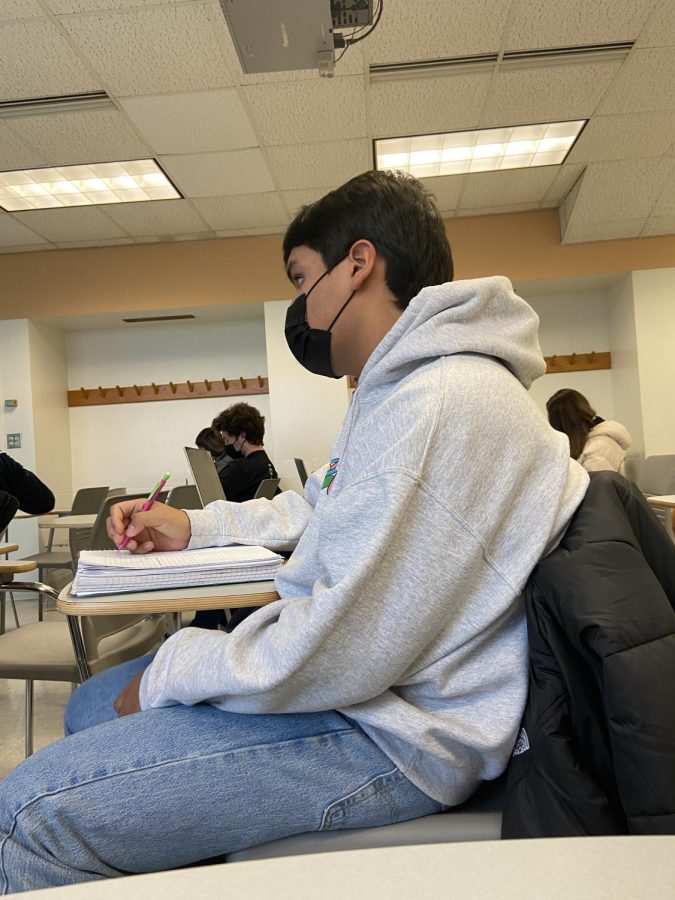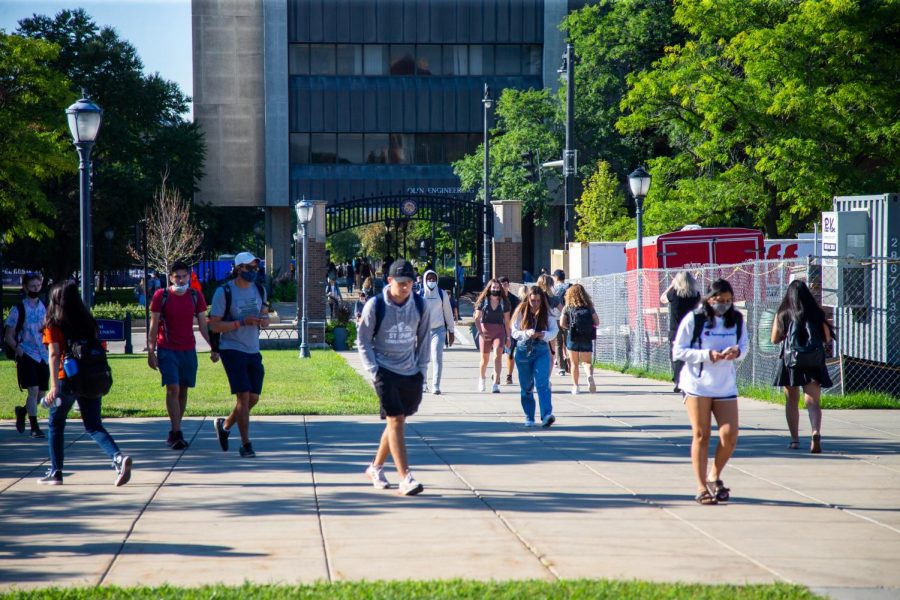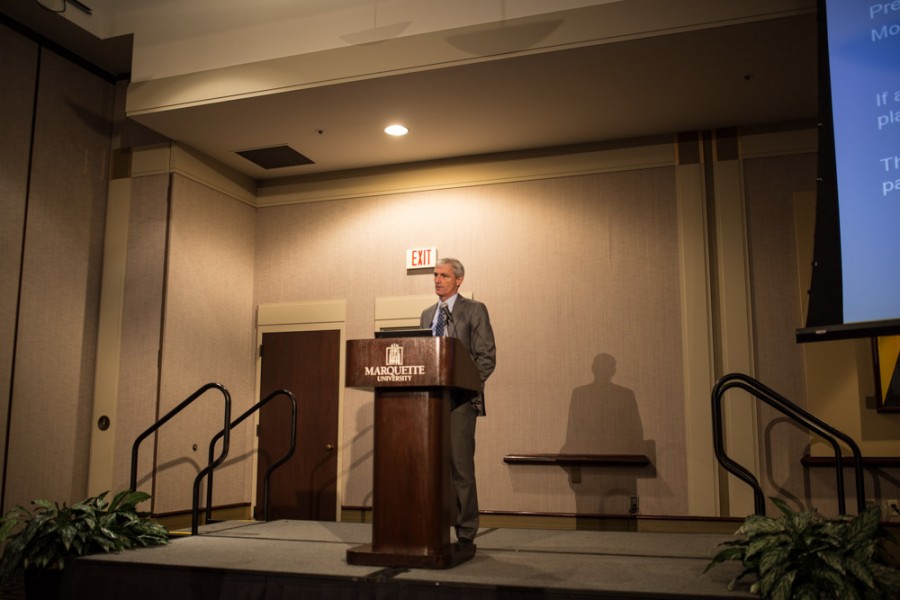Marquette is experiencing a $15 million budget deficit from the impacts of the COVID-19 pandemic, top university officials announced in a Tuesday faculty meeting.
The lost revenue is from lack of student housing, meal plan and parking payments, chief operating officer Joel Pogodzinski said. The university announced March 23 that it would provide students with 50% refunds for residence hall costs, meal plans and parking permits. Marquette did not collect parking fees from faculty and staff members who parked in campus structures or lots in April.
University President Michael Lovell said the deficit includes Marquette’s use of its emergency funds, although it is unclear how much money this included.
Provost Kimo Ah Yun added that Marquette depends on incoming first-year students for revenue. He said Marquette is facing an estimated 7.5-25% reduction in the overall first-year class and a retention rate drop of 3%-10%.
Marquette’s first-year class in fall 2019 included 1,974 students, a nearly 8.7% decrease from the previous fall, according to data from the Office of Institutional Research and Analysis. The first-to-second year retention rate was 90% in fall 2018, according to another data set from the same office.
The financial challenges come amid demographic challenges already expected in higher education. Lovell expressed in an August 2019 letter to faculty and staff that Marquette would undergo a cost management review process to combat the 15-25% decline in college-age students starting in 2026. The decline was predicted in the book “Demographics and the Demand for Higher Education” by Nathan Grawe, who attributes the loss to decreased births after the 2008 economic recession.
Ah Yun said Marquette plans to increase its financial aid budget by 2-8% to accommodate students and families whose financial situations changed during COVID-19. Nearly 17 million Americans have filed for unemployment benefits in recent weeks, according to data from the U.S. Department of Labor. People without jobs in essential fields outlined in stay-at-home orders are left without normal sources of income, and even those in essential fields may face pay cuts.
Marquette is expecting at least $3 million from the federal coronavirus relief bill, Pogodzinski said. The university must use at least 50% of funds received to give emergency financial aid to student borrowers. Money from the relief bill does not include potential stimulus relief checks from the government that might go to students.
The university is placing certain employees — who were pinpointed by department heads, chair holders and deans — on furlough status beginning April 17, Lovell said. He said these people will be placed on temporary leave due to a lack of available work, diminished ability to do work and because some jobs cannot be performed remotely.
Pogodzinski said furloughed employees will retain their original health care status and continue to receive coverage for medical premiums.
Ah Yun and Lovell said they are not currently considering online courses in the fall semester. Lovell said the largest factor in deciding whether to reopen campus will be the judgments of health care professionals and hypothetical scenario planning.
With the fall semester four months away, Ah Yun said there is no current plan to ensure social distancing if campus reopens in late August.
Ah Yun said he is committed to meeting daily with a 25-person COVID-19 response team. He said he meets with the Association of Jesuit Colleges and Universities every 10 days to deliberate and strategize how to handle university issues.
The Tuesday faculty meeting was a forum streamed online from 3-4:30 p.m., headed by Lovell and Ah Yun, who each answered questions in advance from Yasser Khaled, vice chair of Academic Senate.
A previous version of this story incorrectly stated that only faculty members were furloughed, when furloughed university employees included both faculty and staff. The story also stated that the reason for the furloughs was because employees could not continue work from home or were unable to connect virtually. In fact, the reason for the furloughs included lack of available work, diminished need for work and that some jobs cannot be performed virtually. The Wire regrets these errors.
This story was written by JK Rees. He can be reached at james.rees@marquette.edu.










